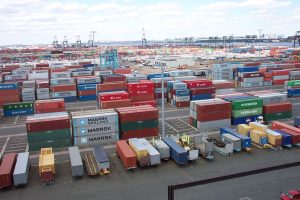The Logistics Industry operates on a complex mesh of contracts, transactions, and deliveries that span across international borders. In this challenging environment, unpaid debts can quickly turn into a logistical and financial hurdle for B2B companies. Enter the DCI Attorney Network, a unique service provided by Debt Collectors International (DCI), designed to tackle the distinct challenges posed by overdue accounts in the Logistics Industry.
The Problem of Non-Payment in Logistics
Non-payment is a concern that often transcends the typical issues faced by businesses. Within the Logistics Industry, these issues take on particular forms:
- Tariff Confusions: Disagreements over import/export tariffs.
- Operational Delays: Payments held due to delayed deliveries.
- Quality Concerns: Issues regarding the quality of shipped items.
- Billing Errors: Incorrect or incomplete invoices.
- Contract Disputes: Ambiguities or disagreements in contractual terms.
- Bankruptcy: Client’s inability to pay due to financial instability.
- Regulatory Changes: Sudden regulatory shifts causing payment delays.
- Currency Fluctuations: Disparities in payment amounts due to volatile foreign exchange rates.
- Insurance Disputes: Conflicts arising from damage claims.
- Force Majeure: Unforeseen conditions causing operational havoc.
DCI’s proven track record confirms that they have successfully recovered debts pertaining to these issues thousands of times over.
DCI’s Financial and Investigative Services
DCI employs specialized financial and investigative services tailored to the Logistics Industry:
- Asset Verification: Determining the debtor’s real asset value.
- Credit Analysis: Evaluating the debtor’s credit score and payment history.
- Document Forensics: Verifying the authenticity of contractual documents.
- Market Analysis: Understanding market trends to assess debtor behavior.
- Invoice Audits: Cross-referencing invoices with service delivery records.
- Legal Assessment: Pre-legal assessment for a feasibility study.
- Skip Tracing: Locating missing debtors using advanced tracking methods.
- Payment Modeling: Creating a feasible model for debt recovery.
- Due Diligence: Comprehensive risk assessment of the debtor.
- Compliance Checks: Ensuring regulatory adherence during the recovery process.
The Exclusive DCI Attorney Network
DCI’s most significant asset for B2B companies in the Logistics Industry is its expansive private international network of attorneys. These are ten compelling reasons why this network provides unparalleled value:
- Global Reach: Access to legal professionals worldwide.
- Specialized Expertise: Lawyers experienced in logistics-related cases.
- Seamless Integration: The network works cohesively with DCI’s in-house experts.
- Legal Leverage: Increased negotiating power.
- No Recovery, No Fee: Aligned with DCI’s performance-based fee structure.
- Multi-jurisdictional Capability: Handling of cases across different legal systems.
- Speedy Recovery: Faster legal procedures.
- Confidentiality: Assurance of complete privacy.
- Cost-Effective: Reduced legal costs.
- Compliance: Ensures international legal conformity.
Specialization in Sub-Industries
The Logistics Industry is not monolithic. DCI specializes in debt recovery across a variety of sub-industries:
- Freight Forwarding
- Third-Party Logistics
- Air and Sea Cargo Services
- Trucking and Haulage
- Supply Chain Management
- Warehousing and Storage
- Customs Brokering
- Courier Services
- Rail Logistics
- Intermodal Transport
Conclusion
Navigating through non-payment issues in the Logistics Industry demands specialized, robust, and rapid solutions. Before considering litigation, B2B companies should strongly consider the vast array of services provided by DCI. The global reach and legal muscle provided by their private international attorney network are unparalleled in the Logistics Industry.
Here are ten reasons why DCI is your best choice:
- Global Expertise
- Industry-Specific Solutions
- Rapid Debt Recovery
- Specialized Attorney Network
- Cost-Effectiveness
- Transparency
- High Success Rates
- Tailored Services
- Client-Centric Approach
- Risk Mitigation
For more information, visit www.debtcollectorsinternational.com or call 855-930-4343.




